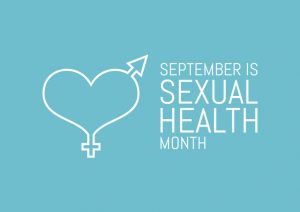 Syphilis cases throughout the United States have surged dramatically over the past five years, increasing by nearly 79% according to a recent report from the Centers for Disease Control and Prevention (CDC). The uptick in cases of congenital syphilis is even more staggering, with an increase of 183.4% from 2018 to 2022. As this epidemic worsens, it’s important to have the facts about syphilis and learn more about what you can do to keep yourself and others safe.
Syphilis cases throughout the United States have surged dramatically over the past five years, increasing by nearly 79% according to a recent report from the Centers for Disease Control and Prevention (CDC). The uptick in cases of congenital syphilis is even more staggering, with an increase of 183.4% from 2018 to 2022. As this epidemic worsens, it’s important to have the facts about syphilis and learn more about what you can do to keep yourself and others safe.
Syphilis is a type of sexually-transmitted infection (STI), meaning that it is spread through sexual contact with other people. It is transmitted through direct skin-to-skin contact with a syphilis sore on another person’s body, but can also spread through casual contact with objects that a person with syphilis may have used, such as toilet seats, door knobs, clothing, or eating utensils. You can also become infected through using shared spaces such as bathtubs or swimming pools.
In its primary stage, syphilis causes firm, round, and painless sores around the site where the infection entered your body. Even if these sores go away without treatment, the disease may enter its secondary stage, which can cause rashes and other symptoms, such as:
- Fever
- Swollen lymph glands
- Sore throat
- Patchy hair loss
- Headaches
- Unintended weight loss
- Muscle aches
- Fatigue
The latent stage of syphilis, which follows the secondary phase, does not present new symptoms. However, it can progress into the tertiary stage, during which the disease can cause damage to organs such as the heart, brain, blood vessels, and eyes. Without treatment, syphilis that enters the tertiary stage can result in death.
Congenital syphilis can occur when a mother with syphilis transmits the infection to her baby. This type of syphilis can cause severe health complications for an affected baby, including:
- Bone deformities
- Severe anemia
- Enlarged liver and spleen
- Jaundice (yellowing of the skin or eyes)
- Nervous system problems, such as blindness or deafness
- Meningitis
- Skin rashes
- Death
You should get tested for syphilis if you are:
- Sexually active, especially if you do not use condoms
- Are pregnant or plan to become pregnant
- Have HIV
- Are taking pre-exposure prophylaxis (PrEP) for HIV prevention
- Have previously had (or currently have) sexual contact with partners who have tested positive for syphilis
You can receive diagnostic testing and treatment for syphilis at Flushing Hospital Medical Center’s Ambulatory Care Center. To schedule an appointment, please call (718) 670-5486.
All content of this newsletter is intended for general information purposes only and is not intended or implied to be a substitute for professional medical advice, diagnosis or treatment. Please consult a medical professional before adopting any of the suggestions on this page. You must never disregard professional medical advice or delay seeking medical treatment based upon any content of this newsletter. PROMPTLY CONSULT YOUR PHYSICIAN OR CALL 911 IF YOU BELIEVE YOU HAVE A MEDICAL EMERGENCY.


